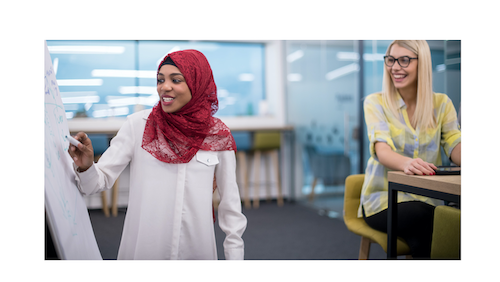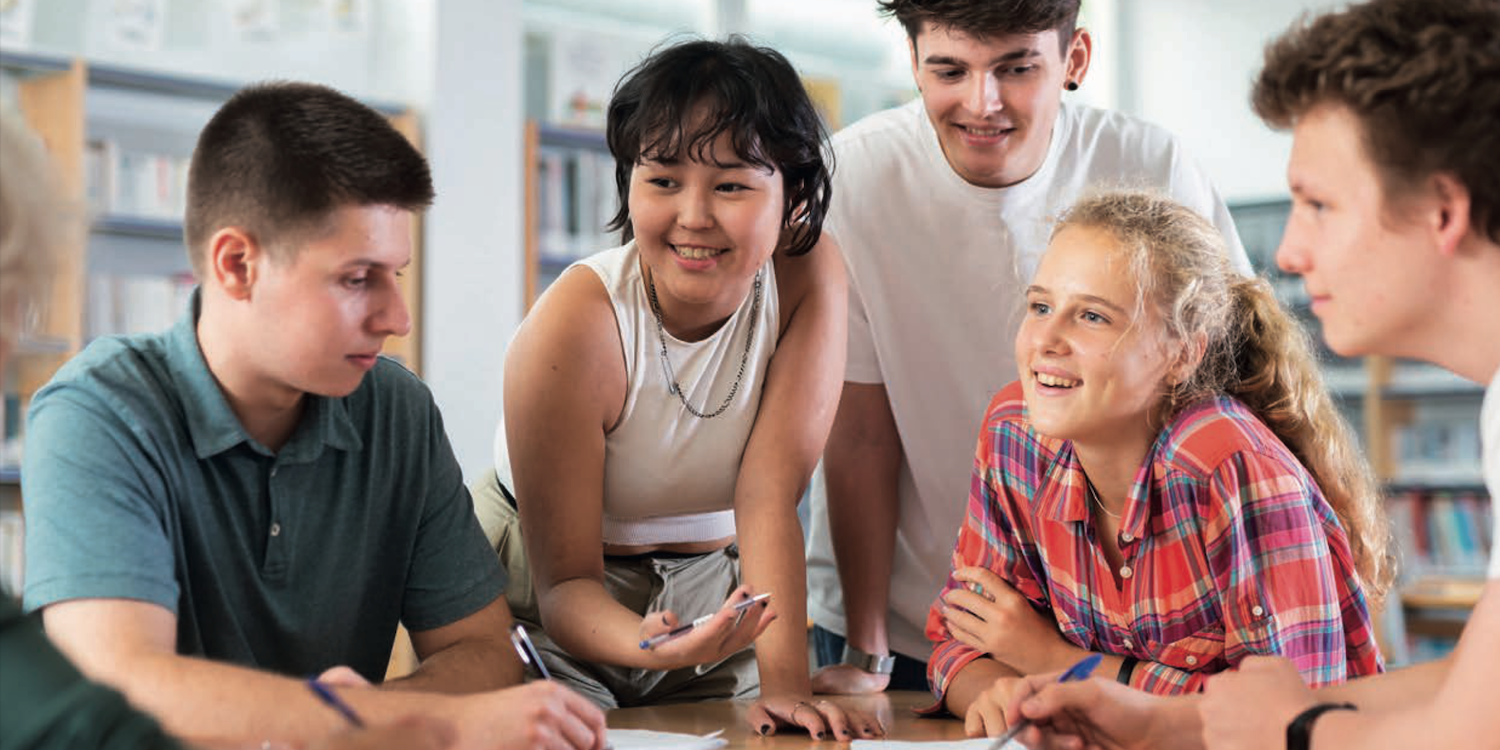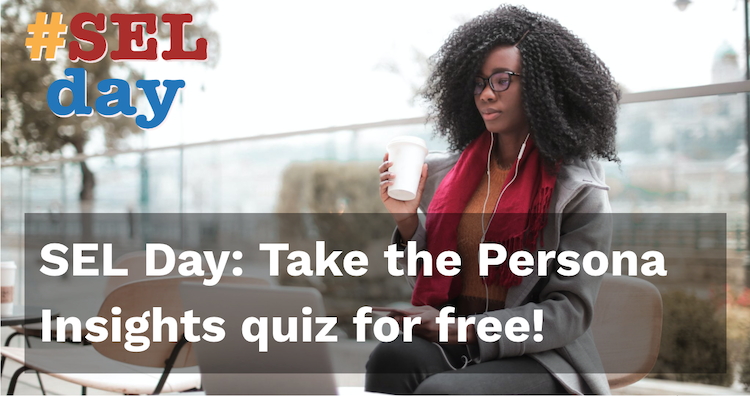The road to Social-Emotional Learning nirvana starts with Self

The road leading to nirvana can be arduous, tiring and you may get a bit lost along the way. The first – and arguably most important – step on this particular journey starts with understanding the self.
14-Jun-22
By Jo Malone, Director of Education
Click here to listen to Jo reading this article on Soundcloud.
Relationships are fundamental to effective learning. Schools and other learning environments are places of constant interactions: in the classroom, in the corridors and offices, in less formal spaces. These interactions involve the entire school community: students, teachers, administrators, leadership, non-faculty staff, visitors, parents and so on.
Schools which invest in Social and Emotional Learning (SEL) reap the rewards in terms of community cohesion, developing young citizens with agency and life skills, and improved academic attainment. The road leading to this nirvana can be arduous, tiring and you may get a bit lost along the way. The first – and arguably most important – step on this particular journey starts with understanding the self.
Lived Out Learning
Because SEL involves living out behaviours, attitudes and values, not only teaching and learning them, all that I say here applies to the adults in a school as well as the children. To be an effective SEL learner you need a foundational understanding of yourself, and to be an effective SEL teacher you equally need a foundational understanding of yourself.

The road to Social-Emotional Learning nirvana starts with self. It is really important for all of us to understand ourselves well and to nurture a positive relationship with ourselves. We need the space and tools to understand our emotions, thoughts, values, attitudes, strengths, challenges, identity and personality. And then to be able to see how these elements impact on our choices, behaviours and preferences across different contexts (Berkeley).
Once we can do this we are better able to articulate and meet our own needs, set realistic goals, and be resilient in the face of setbacks.
Let’s approach this from three perspectives:
- Self-awareness
- Self-acceptance
- Self-management
Each one in itself is an important step on the journey towards the nirvana of effective SEL.
Three Steps towards Social-Emotional Learning nirvana
 .
.
Self-awareness is being aware of our inner life. The more self-aware we are the more we notice our responses and how these can impact on our behaviour. Take the example of the student who is about to give a presentation to his entire grade group. He’s prepared and rehearsed but he feels sick and his thoughts are racing as he enters school that morning. If he is self-aware he will recognise his physical, mental and emotional reactions to this event and be able to acknowledge and name his feelings. The unaware student may well descend into a spiral of panic, losing control of the situation.
Once self-aware, we can nurture self-acceptance. Simply put, self-acceptance is being truthful with ourselves about what we are feeling, why we are feeling this way, and what this tells us about ourselves. In some cultures expressing emotions can be seen as a weakness, in others emotions can be perceived as getting in the way of social harmony (Berkeley).

There is plenty of research which demonstrates that suppressing our emotions is damaging. It can lead to negative coping strategies, which in turn can damage our health, and result in damaged relationships.
One super simple technique to help with self-acceptance is to name your emotions. This is what the psychologist Dan Siegel calls ‘name it to tame it’. When we name our feelings we take responsibility for them and start to manage them (New York Times). It is well worth investing time in giving students the language to name their feelings, liberating them to be able to communicate openly about how their emotions are impacting them.
The student who can say, “I am anxious about something that happened this morning, I was not concentrating, can you repeat what you said?” is enabling a much better outcome both for themselves and for the teacher who is angry that her student was not listening properly and has not begun a task. Similarly, the teacher who can say, “Sorry for shouting at you earlier, I was frustrated by the class’ behaviour”, is modelling SEL excellently.
The third and final step in this journey towards understanding the self is self-management. In the Persona Life Skills platform, we ask students questions such as, how good a friend are you to yourself? If you met yourself would you want to be your friend, bearing in mind that our friends trust us, champion us, challenge us, support us? What is the nature of our self-talk? (Persona Life Skills teacher-facilitated module ‘Self Love: Learn how to be your own best friend’.)
 .
.
Of course, a little of our inner critic can be incredibly useful and we won’t want to completely silence this voice – but is it realistic or is it prone to exaggeration? (We have an inbuilt negativity bias.)
We need to support students on their personal growth journey so that they accept themselves fully and approach their inner selves with compassion, kindness and respect. It is important that young people understand we can feel upset, angry or disappointed in ourselves – and yet still love ourselves.
Some simple tips for young people, which we practise with students in Persona Life Skills include forgiving yourself, learning from missteps, and moving on. We remind students that making mistakes is a normal human experience; some of our greatest growth and learning can come from making mistakes. We give students tips and tools to become more aware of and listen carefully to their inner narrative.
Reap the Rewards
Taking ourselves and our students on this three-part self-understanding journey, puts us in a much better position to:
| Respond to feedback and develop a growth mindset | |
| Predict and manage conflict | |
| Be courageous and be innovative | |
| Adapt to the needs of others for better mutual outcomes | |
| Contribute positively to creating cohesive teams and communities | |
| Lead other people effectively |
We know that industry leaders prize these social-emotional skills even more than technical or even digital skills. In June 2021 the World Economic Forum identified 10 top skills for the workplace: 9 out of 10 were social-emotional skills.
As the 6th Century BC Chinese philosopher Laozi said:
“He who controls others may be powerful, but he who has mastered himself is mightier still!”
A version of this article 'The road to Social-Emotional Learning nirvana starts with self' was first published in UNESCO Mahatma Gandhi Institute of Education for Peace and Sustainable Development (MGIEP).
Persona Education offers free access to its Persona Life Skills e-learning platform for secondary schools and colleges interested in developing their pupils’ social & emotional life skills, to boost wellbeing and employability.
About the author: Jo Malone is a global education expert, with over two decades experience in teaching, e-learning, dialogic education and teacher training. A social-emotional learning (SEL) and PSHE thought-leader, she is Director of Education at the Bristol based edtech company Persona Education Ltd, providing onboarding, guidance and support for schools and colleges using the Persona Life Skills personality insights life skills online learning platform. persona-life.com









